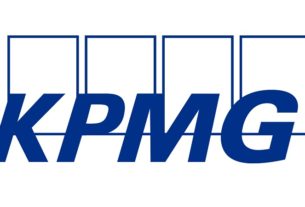The importance of Malaysia’s Budget 2024 proposals to spur nation-building was discussed at a forum organized by KPMG in Malaysia with Dato’ Che Nazli Jaapar, Under-Secretary of the Tax Division at the Ministry of Finance (MoF), and Dato’ Sri Dr. Mohd Nizom Sairi, CEO of the Inland Revenue Board (IRB) of Malaysia. Out of that dialogue, which included live polls, Malaysia’s latest tax reforms to broaden its tax base amidst the current fiscal outlook recorded mixed sentiments by the participating delegates.
A particular reaction surrounded the proposed Sales & Services Tax (SST) rate increase beginning 1 March 2024 from 6% to 8%¹, where only 17% of surveyed delegates were supportive of the SST rate increase, while 32% were opposed to it. A surprising revelation emerged as more than half (51%) of the surveyed delegates expressed a preference for the re-introduction of the Goods & Services Tax (GST) in place of the SST rate hike.
Commenting on this poll result, Soh Lian Seng, Head of Tax at KPMG in Malaysia who moderated the forum, said, “This sentiment underscores the challenges faced by policymakers as they strive to strike the right balance between implementing tax reforms to improve the nation’s finances and introducing initiatives that support the Rakyat’s wellbeing. I’m encouraged that the MOF and IRB continue to accept public opinion, which has played a crucial role in shaping the proposals for Budget 2024.”
To the question about the tax reforms Malaysia should introduce, majority (69%) of surveyed delegates prefer the government to strengthen tax compliance and governance, which would promote better revenue collection and efficient use of taxpayers’ money, along with addressing the shadow economy. This was followed by leveraging tax policies through simplifying tax administration and promoting more ESG-driven tax policies, to attract domestic and foreign investments into the country (45%). The desire for a move towards cooperative compliance in line with concepts like awareness, education and services (AES), Special Voluntary Disclosure Program (SVDP) and Tax Corporate Governance Framework (TCGF) stood at 29%. Lastly, at 22%, was the wish for increased tax certainty with a more thorough follow-through of court decisions.
The imminent implementation of e-invoicing by 1 August 2024 and its potential benefits was also covered in the dialogue. Summarizing the discussion, Soh said, “It is the consensus of both the policymakers and taxpayers that e-Invoicing’s can be effective in addressing the shadow economy and revenue leakages, thereby further enhancing revenue collection. The proposed timeline is realistic, and this was substantiated by extensive study visits to seven different jurisdictions.”
Also positively welcomed was the implementation of the Global Minimum Tax (GMT) in Malaysia, where 66% of surveyed delegates agree to the timely implementation by 2025. This suggests that the proposed timeframe has provided much-needed lead time for in-scope multinational enterprises (MNEs) to make necessary preparations. During the forum, it was revealed that MoF aims to engage with in-scope MNEs in 2024 to discuss government support and optimize the tax incentive system through an outcome-based approach to attract and retain investors in Malaysia. This strategy leverages the country’s robust fundamentals, encompassing infrastructure, talented workforce, and business-friendly environment, while offering increased flexibility for tax incentives and aligning with international developments.
Over 600 delegates attended the forum at KPMG’s Tax and Business Summit, which covered a wide range of business issues through constructive exchanges between business professionals and policymakers.
Soh concluded, “Through this dialogue, it was clear that the government is resolute in garnering more support from the Rakyat for its tax reform initiatives. I believe that the successful transformation of our country’s tax ecosystem requires a collective effort, involving collaborations between taxpayers, tax administrators, and tax professionals. Together we can establish a healthy, just and equitable system that benefits all stakeholders.”
¹ The 2% hike in service tax rate applies to all taxable services (except for telco, food & beverage (F&B), parking and logistics) and expansion of scope to include logistics, brokerage, underwriting and karaoke services.




